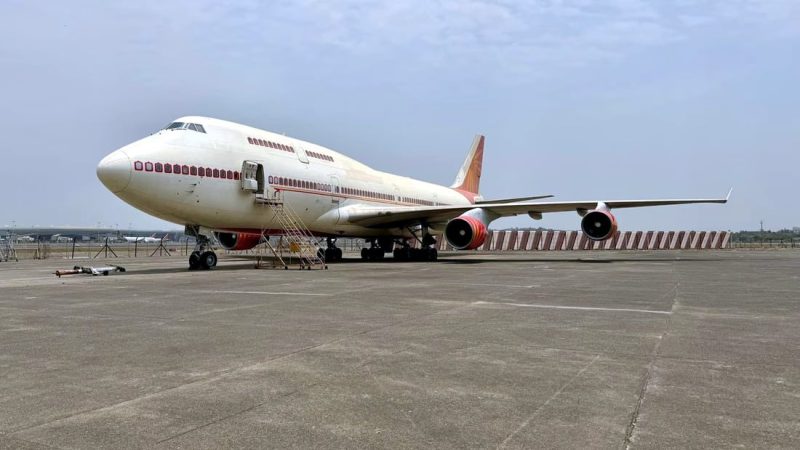The airline Air India has found a buyer for its last Boeing 747-400. Some of the old machines, which were manufactured in the 1990s, are to be converted into freighters.
Two of the now former Air India jumbo jets will be dismantled for spare parts and what can no longer be marketed will be scrapped. The other two examples have an aviation future because the US buyer wants to have them converted into cargo aircraft.
The four Boeing 747-400s in question are the last of their kind that were in use by Air India. They were built between 1993 and 1996. For the Indian carrier, the phase-out and sale of these four aircraft marks the end of an era, as the jumbos were Air India's flagships for many years.
For now, three out of four Boeing 747-400s remain parked at Mumbai Airport. The new owner will arrange the transfer at a later date. The former VT-EVA, which is now registered to the N940AS, was transferred to Seattle and thus to the United States of America on April 22, 2024. It was last used commercially by Air India in 2021. Since then, this Boeing 747-400 has been waiting for better times at Mumbai Airport. It was delivered directly to India's largest airline in 1996.
Air India actually wanted to operate the jumbo jets for a few more years. However, the corona pandemic led to the new owner Tata Sons scrapping the plans. For economic reasons, it is preferable to use twin-jet aircraft such as the Boeing 777-300ER on long-haul flights, although they themselves have an expiry date because this type of aircraft is to be replaced by the Airbus A350. The modernization is intended to enable the Indian carrier to save fuel costs in particular. The four-jet Boeing 747-400 then had no more space.
By the way, Air India relied on the services of the B50 series for almost 747 years. In 1971, the first example was taken over: VT-EBE, a B747-200B. Over the years, a total of 25 different machines from this series have been in use. There were also individual Combi examples of both the 300 series, which still had to be operated with a flight engineer, and the 400 series, which, however, have long since been phased out.







 trail (for them it's free to use)
trail (for them it's free to use)